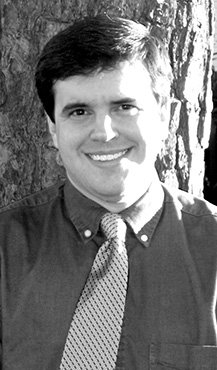In medicine, small details and small actions make the difference between life and death. Doctors and nurses work tirelessly to save lives and often go unnamed or unappreciated. Dr. Hugh Williamson is a figure largely unknown in modern times, but he was praised as one of the best medical minds in the young United States. His actions during the American Revolution saved countless lives and advanced military medicine to begin saving more in the future.
Hugh Williamson was born in a small farm town in southeast Pennsylvania in 1735. His parents, both Irish immigrants, worked as clothes makers and merchants. His health was very bad when he was young, pushing him in a different direction.
In 1754, he enrolled in the new College of Philadelphia (the modern University of Pennsylvania). He graduated in 1757 and began working as a Latin tutor at the college. He had developed a strong aversion to slavery at a young age. He considered a career as a minister – and was even ordained as a Presbyterian minister — but was repelled by church divisions. In 1763, after a stint as a math professor at the college, he turned to medicine. Williamson traveled to Scotland and to Holland to study medicine, where he earned a medical degree in 1764. He set up a practice in the colonies and earned respect for his academic writings.
In 1777, he attempted to enlist in the Continental Army as a surgeon, but he was rejected on the grounds that there were no openings available. Instead, he returned to North Carolina and began secretly working with merchants in the Bahamas to import medicines into America, breaking the British blockade. His actions provided the colonies with an important avenue of medical supplies. From 1779 to 1782, he served as the Surgeon General of the North Carolina Militia.
He also proved to be an able diplomat. In 1780, with the blessing of his superiors, Williamson convinced the British to allow him to treat wounded prisoners and to inspect the conditions of prisoner of war camps in South Carolina. He was shocked by the poor conditions of the camps and feared a deadly smallpox epidemic was about to lay waste to the camps. He urged an immediate sanitation program to avert disaster. The British commanders were impressed by his pleas and respected his knowledge and agreed. The epidemic was averted. Williamson accomplished this generations before the Geneva Convention afforded any kind of protections or rights to prisoners of war.
Williamson’s work with the Continental Army became crucial as the British tried to move into North Carolina. American forces were secluded in the Dismal Swamp near Wilmington to pin down the British. He insisted on a program of strict hygiene for troops to avoid outbreaks of disease, including training new recruits in the importance of cleanliness. Disease often devastated combat units. More soldiers died from disease and camp-borne epidemics than from battlefield injuries in the wars of this time period. Where the swamp could have become an even deadlier foe than the Redcoats, Williamson’s thinking prevented any deaths from disease among the troops, an almost unheard-of accomplishment at the time. His standards were soon adopted throughout the army. His efforts saved hundreds of lives.
After the American Revolution, he served briefly in the North Carolina legislature. In 1787, he was elected as a delegate to the Constitutional Convention in Philadelphia. Williamson railed against slavery at the convention and pushed for a fair system of representation in Congress similar to what resulted. However, he recognized that forces were working against him too much and the question would not be settled there. He supported the Constitution’s ability to ban slave importation after twenty years, the limit of the document’s possible restrictions on slavery at that point. He was one of only three North Carolina delegates to sign the Constitution that resulted.
He was elected as part of North Carolina’s first congressional delegation. He took his seat in 1790 at Philadelphia, which was the nation’s capital at the time. He was re-elected in 1791. He declined to run for a third term and retired from politics in 1793. No political parties existed yet, but Williamson often found himself opposing many of the policies proposed by President George Washington, particularly on issues such as the national debt and possible protective tariffs.
Williamson settled in New York City after his retirement. He largely faded from the public eye and contented himself with scientific and medical research. He wrote many articles for scientific journals on a variety of topics, from lightning rods to biology. He still kept his connections to North Carolina, serving as one of the first trustees of the University of North Carolina. His sharp mind, intelligence, and curiosity about so many subjects led many contemporaries to compare him to Benjamin Franklin.
He died in New York City in 1819 at age 83. Though largely forgotten, counties in Illinois and Tennessee are named for him.
Dr. Ken Bridges is a professor of history and geography at South Arkansas Community College in El Dorado and a resident historian for the South Arkansas Historical Preservation Society. Bridges can be reached by email at kbridges@ southark.edu.
